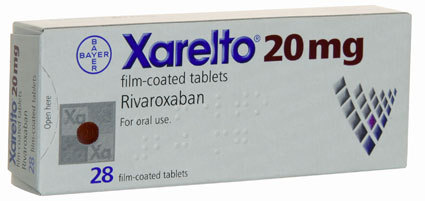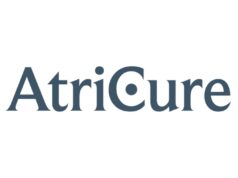
Bayer HealthCare has announced a collaboration with the Population Health Research Institute (PHRI) and the Canadian Stroke Prevention Intervention Network (C-SPIN) to conduct the global phase III, indication seeking trial, NAVIGATE ESUS, which will investigate the benefits of the once-daily, oral factor Xa inhibitor (xaban), rivaroxaban in patients with embolic stroke of undetermined source or cryptogenic stroke. Enrolment of patients for the study has started successfully.
Approximately 32,000 people each year suffer from embolic stroke of undetermined source in the UK, for which there is limited knowledge available to guide treatment decisions. NAVIGATE ESUS will include approximately 7,000 patients and be conducted in more than 25 countries.
“We are committed to investigating the potential further benefits for rivaroxaban in areas where there is a significant unmet need. The ROCKET AF study confirmed that once-daily rivaroxaban is highly effective in preventing stroke in patients with non-valvular atrial fibrillation, with and without previous stroke or transient ischaemic attack, so we believe there is potential for rivaroxaban to provide this same protective benefit to patients with a recent ESUS,” says Luis Felipe Graterol, medical director, Bayer HealthCare UK.
Rivaroxaban is already approved for five indications in seven areas of use and its investigation-both completed and ongoing-will include more than 275,000 patients in clinical trials and real world settings.
Most recently, Bayer HealthCare announced an update to the rivaroxaban prescribing information to include use in treating patients with non-valvular atrial fibrillation undergoing cardioversion. This label update provides physicians with important information on the practical use of rivaroxaban in patients with atrial fibrillation who require cardioversion.
“Ensuring patients are adequately anticoagulated when they undergo cardioversion is crucial. International normalised ratio levels for patients treated with warfarin can be inconsistent and/or out of therapeutic range. This problem is eliminated by the fixed-dose anticoagulation provided by Xarelto. The Xarelto label update is extremely welcome, providing physicians with clear guidance for treating patients with atrial fibrillation undergoing cardioversion,” says Oliver Segal, consultant cardiac electrophysiologist, The Heart Hospital, University London College Hospitals, London, UK.
The label update is based on findings from the X-VeRT study, the first completed prospective trial of any novel oral anticoagulant in 1,504 patients undergoing elective cardioversion. In this exploratory study, rivaroxaban demonstrated effective protection with an event rate comparable to vitamin K antagonists in the primary efficacy endpoint – composite of all stroke, transient ischaemic attack, peripheral embolism, myocardial infarction and cardiovascular death (0.5% vs. 1.0%; risk ratio: 0.50; 95% confidence interval: 0.15-1.73). In the primary safety endpoint of major bleeding, rivaroxaban demonstrated a comparable safety profile with no increase vs. vitamin K antagonists (0.6% vs. 0.8%; risk reduction 0.76; 95% confidence interval: 0.21-2.67) in the incidence of major risk ratio (relative risk reduction of 24%, ARR 0.19). The practical advantage of using rivaroxaban was demonstrated by the shorter time frame to cardioversion compared with treatment using warfarin in the delayed cardioversion group (median of 22 days vs. 30 days respectively, p<0.001). The study was published in the European Heart Journal in September 2014.









